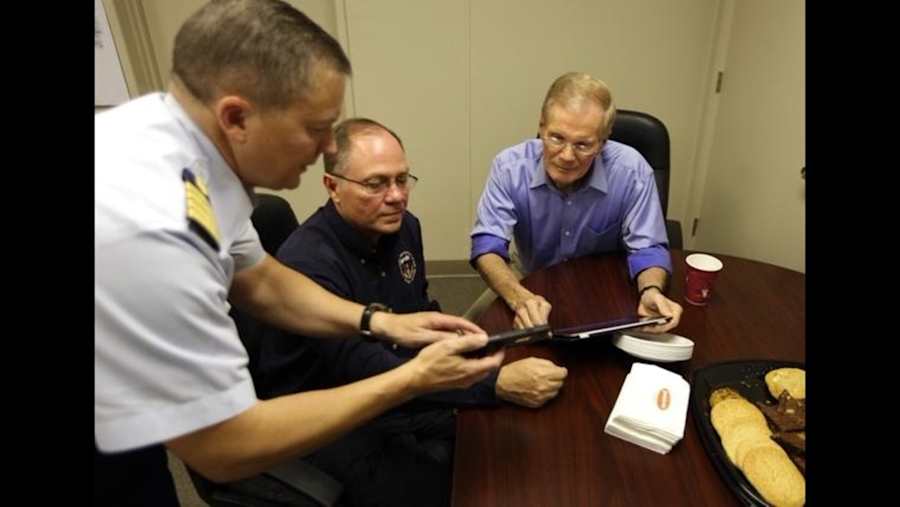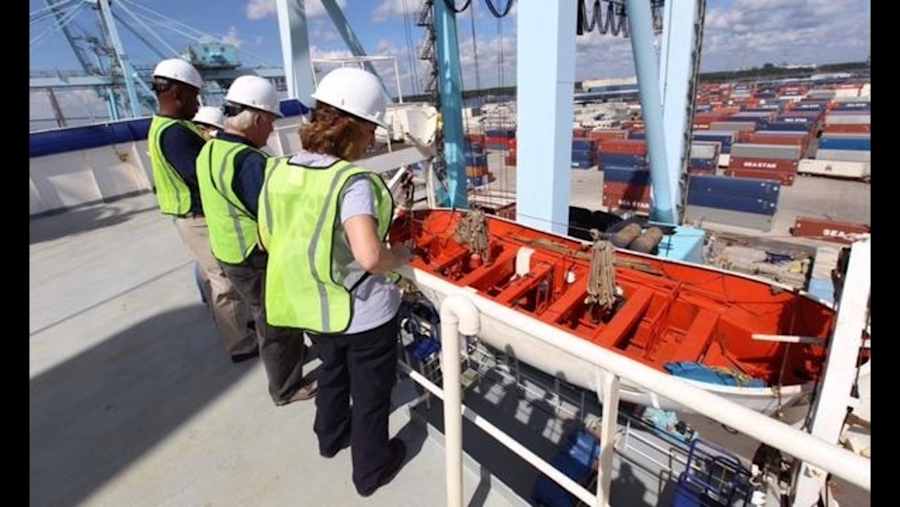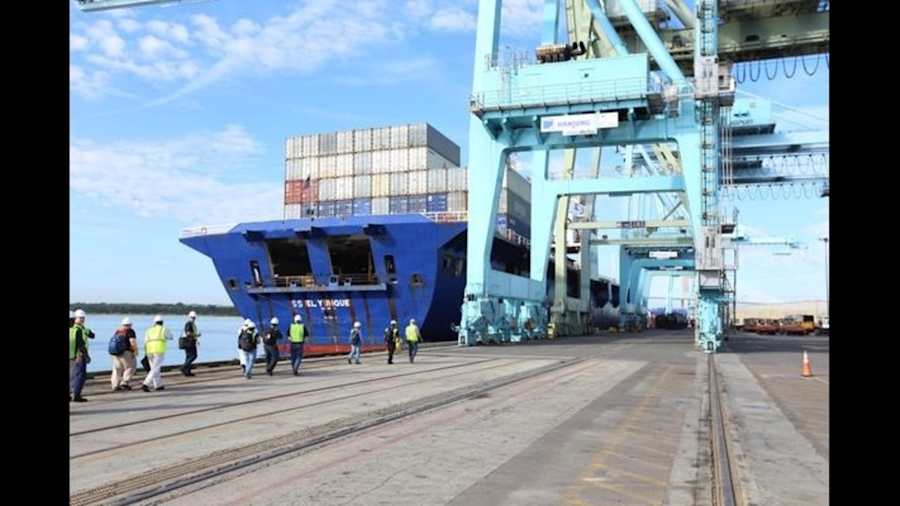JACKSONVILLE, Fla. – The National Transportation Safety Board said the investigation into what happened to the El Faro and her crew, lost at sea over a week ago off the coast of the Bahamas in Hurricane Joaquin has a long way to go, and while family members are still coming to grips with their loss, one Florida lawmaker is demanding answers.
Florida Sen. Bill Nelson met with the NTSB and TOTE Maritime, the owner of the ship, about the investigation into the El Faro tragedy on Friday. He also spoke with the Coast Guard.
The Coast Guard officially called off their search for survivors on Wednesday, a decision that some family members said was too soon, even creating a petition on Change.org, calling for the search to be resumed.
Nelson said he wants answers for the families of the 33 crew members on board. He said this was a huge tragedy and he's doing everything he can to make sure that other sailors don't have the same fate.
"I want the families to have closure, to know as much as possible, exactly what happened and how they lost their loved ones," Nelson said. "I think this is a great tragedy and it involves a lot of Floridians and it certainly involves a company that does a lot of business here."
Nelson is a leader on the Senate Commerce Committee, which has jurisdiction over the NTSB.
"There are so many unanswered questions," Nelson said. "My responsibility as the top ranking member of the committee that has jurisdiction over the NTSB as well as the Coast Guard is to make sure they are doing as thorough a job as possible."

He said there were routine communications with the El Faro on Sept. 30 around 11 a.m. The final communication came somewhere around 7 a.m. on Oct. 1 Nelson said Hurricane Joaquin would have been close to El Faro at that point.
"Why they would have been in a position where the hurricane was is what is inexplicable," said Nelson.
Nelson wrote a letter to the NTSB on Thursday, asking it to include in its investigation of the accident a review of TOTE Maritime's policies for sailing in severe weather.
READ: Sen. Bill Nelson's letter to NTSB
UNCUT: NTSB's Thursday evening briefing
Nelson said aside from the human remains found in one survival suit, the Coast Guard found several other survival suits that were zipped up. He said no one tried to get into them.
"In an ideal situation, they would have marked that and come back to it with a surface vessel to pick up those remains but they were actively searching for survivors at this point," said Nelson.
He also expressed concern over the fact that the ship was more than 40-year-old. He said the life rafts were outdated and inadequate for the conditions the crew faced.

"What they found was a life raft like this. This being an old ship, they found a life raft, it was pretty beaten up. The newer ships have to have these kind of life rafts which are totally enclosed," Nelson said.
Nelson said the captain of El Faro, Michael Davidson, was able to report a loss of power before contact ended with the ship.
"What I was also told was that final communication by voice, the captain's voice was very calm, he was not alarmed even though he said he lost power," said Nelson.
On Friday, NTSB investigators were at TOTE's Blount Island facility to examine the El Yunque, which is nearly identical to the one that sank.
IMAGES: NTSB investigators examine El Yunque

Dr. Bella Dinh-Zarr, NTSB vice chairwoman, said the entire process will take some time and the team is only in the beginning stages. The investigators are discussing with the Navy how to get the equipment needed to find the cargo ship.
They will need remote-operated vehicles to go deep into the water where the El Faro was last heard from. Once they've found the ship, their top priority is finding the voyage data recorder, a device that records the hours leading up to the accident, including audio conversations on the bridge.
"Well, we know the type of data recorder that's on the ship. It's a fixed type of data recorder in that it's fixed to the bridge," Dinh-Zarr said. "Once the ship is located, we'll have a good idea of where the VDR will go."
Dinh-Zarr said even after the 30-day time frame is over, the recorder's data will still be salvageable.
Investigators are also looking deep into the background of the 33 crew members who were aboard the ship, as well as looking at people who work on other crews and served as relief on El Faro from time to time.
Nelson also said that he was concerned with the safety of TOTE Maritime's other ships. He toured the El Yunque with the NTSB Friday trying to make sure the ship was seaworthy.
"I can't make the judgment (if the El Yunque is seaworthy). These folks will. But I can guarantee you that they are highly sensitized to this and that's one of the reasons why I am here," Nelson said.
Nelson headed back to Washington D.C., but he said he'll keep a close eye on the investigation. He said it could take months, if not longer, to get answers but he's optimistic the NTSB, with help from the Navy, will find out what happened to the ship and the 33 people onboard.
TOTE Maritime set up a fund with the Seamen's Church Institute, North America's largest mariners service agency, to support the families and loved ones of the El Faro crew. TOTE said 100 percent of the donations will go directly to the 33 families.










